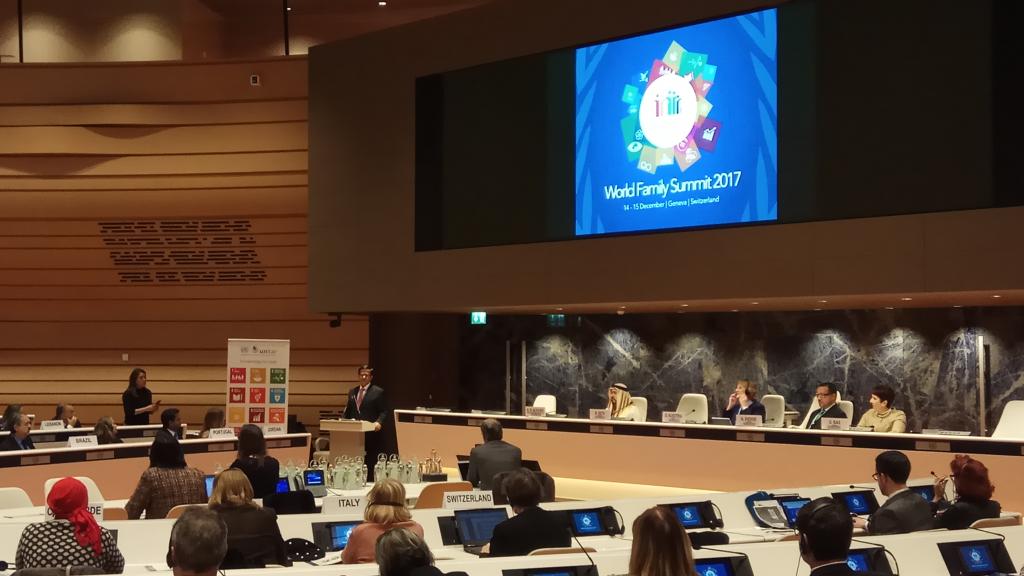No Family Left Behind at the 2017 World Family Summit
14 December 2017, Geneva, Switzerland - The World Family Organization, in partnership with UNITAR, organized the 2017 World Family Summit. The theme of the conference was “No Family Left Behind: Families and Local Authorities working together to transform cities and human settlements into inclusive, safe, resilient, sustainable with strong communities”
Women, men, children, youth, older persons, persons with disabilities, people living with HIV, indigenous people, refugees, internally displaced persons and migrants - all of them have in common the fact that they belong to a Family. Supporting local authorities and families to implement the Sustainable Development Goals (SDG), in particular SDG 11 and SGD 12, is an exceptional opportunity to achieve better integration between community needs and public policy development leading to renewed hope, harmony, jobs and growth, while ensuring sustainability.
 Nikhil Seth, United Nations Assistant Secretary-General and Executive Director of the United Nations Institute for Training and Research (UNITAIR) delivered his opening remarks and congratulated Dr. Deisi Kusztra, President of theWorld Family Organisation, for her leadership and vision and thanked all those who had made this Summit possible. He mentioned his long-standing engagement with the World Family Organization which goes back 14 years and highlighted the nimble, efficient and flexible way the Summit plugs its work into the topical agendas of the United Nations.
Nikhil Seth, United Nations Assistant Secretary-General and Executive Director of the United Nations Institute for Training and Research (UNITAIR) delivered his opening remarks and congratulated Dr. Deisi Kusztra, President of theWorld Family Organisation, for her leadership and vision and thanked all those who had made this Summit possible. He mentioned his long-standing engagement with the World Family Organization which goes back 14 years and highlighted the nimble, efficient and flexible way the Summit plugs its work into the topical agendas of the United Nations.
Humankind has achieved unprecedented social and economic progress over the past several decades. However, the progress has been uneven. Everywhere, some individuals and groups confront barriers that prevent them from fully participating in economic, social and political life, leaving them behind. The focus of the Agenda 2030 and the core aspiration of the World Family Summit 2017 was to highlight the inclusion of the family by strengthening local authorities and families to build cities and human settlements inclusive, safe, resilient and sustainable: No Family Left Behind.
The 190 participants reached a consensus on the benefits of supporting and demanding the inclusion and implementation of the SDGs 11 and 12 and their respective targets into local family-friendly public policies formulation and services delivery, building strong communities and healthy families. The mechanisms and processes for an enhanced collaboration between local governments and families for the SDGs 11 and 12 implementations were discussed. Additionally, possible new collaboration models between local governments and family organizations were outlined, to provide partnership schemes addressing the implementation of the SDGs 11 and 12. As a follow-up to the event, conclusions and recommendations will be drafted and sent to the 2018 UN Economic and Social Council High Level Political Forum.
Photo 1: Opening remarks of UN Assistant Secretary-General, Executive Director of UNITAR, Nikhil Seth

